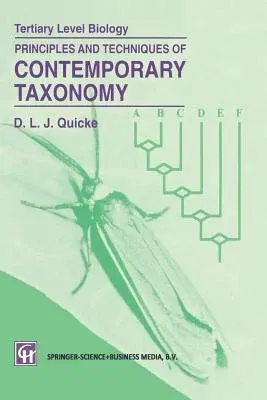Principles and Techniques of Contemporary Taxonomy (Softcover Reprint of the Original 1st 1993)Paperback - Softcover Reprint of the Original 1st 1993, 3 October 2013

Qty
1
Turbo
Ships in 2 - 3 days
In Stock
Free Delivery
Cash on Delivery
15 Days
Free Returns
Secure Checkout
Part of Series
Experimental and Clinical Neuroscience
Print Length
311 pages
Language
English
Publisher
Springer
Date Published
3 Oct 2013
ISBN-10
9401049459
ISBN-13
9789401049450
Description
Product Details
Book Edition:
Softcover Reprint of the Original 1st 1993
Book Format:
Paperback
Country of Origin:
NL
Date Published:
3 October 2013
Dimensions:
22.86 x
15.24 x
1.73 cm
ISBN-10:
9401049459
ISBN-13:
9789401049450
Language:
English
Location:
Dordrecht
Pages:
311
Publisher:
Weight:
435.45 gm

